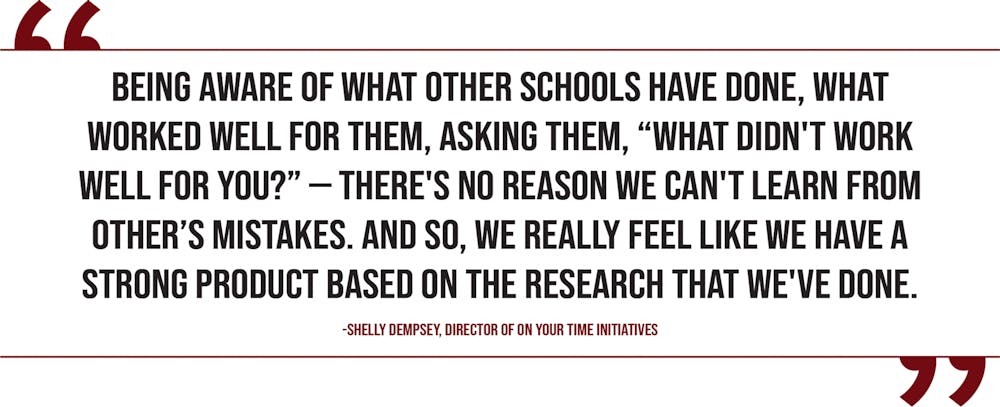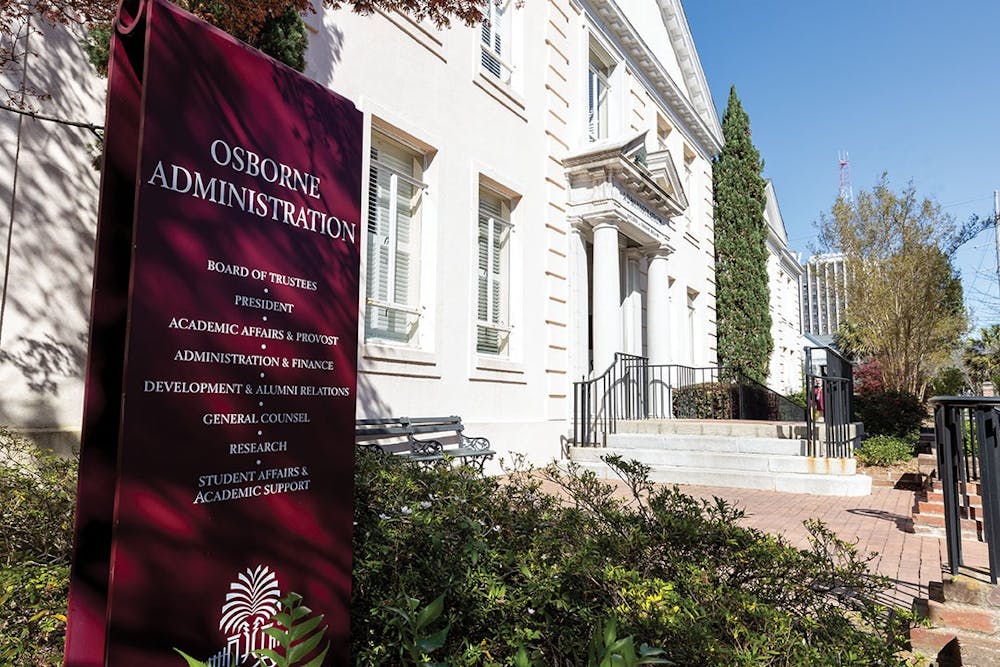USC will start offering undergraduate students a certification program in digital studies, beginning fall 2023, that will provide those enrolled with additonal expertise across several areas of technology.
Students in the program are required to take at least 12 credit hours of courses from colleges across campus, such as the College of Engineering and Computing, the College of Information and Mass Communications and the College of Arts and Sciences. The certification will show up on the student's transcript along with their major.
The classes offered by each of the colleges focus on teaching students foundational technological skills like working with media arts or learning about computer software. The purpose of the certification is to give students skills that will interest employers, according to USC Provost Donna Arnett.
“We know now from research done in terms of what makes students more competitive and get higher salaries when they leave, is having certain sets of skills, and digital skills is one of them,” Arnett said.
The idea for the program was initiated by university President Michael Amiridis when he first came to USC in the summer of 2022. Arnett said Amiridis approached her with the idea, wanting students to be career ready. The program was then approved by the board of trustees on Dec. 13.
Before getting approval from the board, Arnett and Shelley Dempsey, project manager and director of On Your Time Initiatives — a section of the university dedicated to improving retention and degree progression, reached out to department heads in each of the colleges to get their input on what classes should be offered in the certification.
Department of Geography Chair Jerry Mitchell explained the classes offered by his department will work to enhance students’ spatial thinking skills and knowledge about other people, places and cultures. In the geography classes offered for the certificate, students learn how to work with satellite and drone imagery in order to understand phenomena that may not be obvious to others.
“If we had a sensor that had infrared, we can see a heat plume in a river, where that water is warmer than the river around it and trace that heat plume back to a factory and know that they're dumping. And that’s not something you can just easily see, right?” Mitchell said. “That would have a societal impact to be able to do some sort of surveillance on something like that."
Mitchell said geography can sometimes be a “discovery major,” which many students transfer into later on in their college career. He said he hopes to see more growth in the department come out of the Digital Studies certification.
“It'll be important for us too as faculty advisors, when students come in, and they're doing their global studies,” Mitchell said. “It'll be on us too to say, ‘Hey, do you know about doing this extra 12 credits? Hey, that doesn’t seem so daunting.'”
In the College of Engineering and Computing, Integrated Information Technology Chair Elizabeth Regan said she hopes the courses will make students more prepared when beginning a new position.
“I think that computing and digital technologies have impacted every area whether it's art, dance, music, geography, science, engineering, no matter what the field,” Regan said. “Digital technologies are so integrated into everything we do and all business processes today that it's a skill set that many students would like to have some experience and during their college years to build some competency in those areas.
While constructing the program, Arnett and Dempsey reached out to other universities like the University of Wisconsin-Madison, which implemented a certification in digital studies.
“Being aware of what other schools have done, what worked well for them, asking them, ‘What didn't work well for you?’ — there's no reason we can't learn from other’s mistakes. And so, we really feel like we have a strong product based on the research that we've done,” Dempsey said.

For now, the Digital Studies certification will be the only of its kind offered to students. Dempsey said the university will continue to evaluate the program to see if students have more of an advantage in the job market.
“We can consider it a win that we got it on the books,” Dempsey said. “But aren't we academics? We need to assess it. And so that's what we're excited to be able to get some students enrolled in it and begin assessing.”

